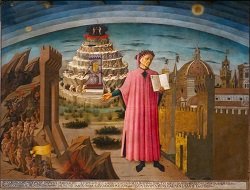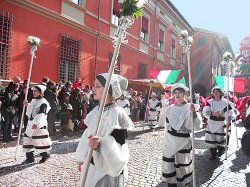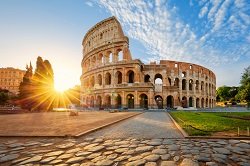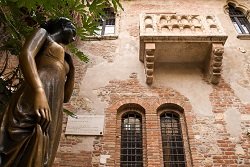Italian Language 101 - Basic phrases in Italian, Italian sayings, How to learn the Italian language
The problem with the Italian language
Italian is the modern language that resembles Latin more than any other modern language. This is because Italian and its many regional dialects developed from Latin, and is part of the big group of Indo-European languages. If you ever traveled to different regions of Italy, you might also notice that Italian does not always sound the same, especially when you go from the mainland to one of the Italian islands. Even native speakers of Italian might sometimes have problems understanding each other when they come from two very different regions. Some people also prefer to call their dialect of Italian a proper language and not just a “dialect”. Of course, this also poses one or the other problem for the non-native speaker who will have to focus on learning the general rules of Italian.
Where do people speak Italian?
English is not the only language that is spoken in more than just one country. While Italian is not such a universal language, you can still find that Italian can be useful in a number of countries. Of course, Italian is the official language of Italy, but did you know that it is also an official language in Switzerland? Italian is also spoken in Albania, San Marino, Vatican City (which is not part of Italy but an independent country, kind of), Slovenia, Croatia, and in different countries all over the world in which you can find Italian settlements/communities.
How to learn the Italian language
Italian is not as hard to learn as other languages because the pronunciation is quite straight forward and unlike with Japanese, Chinese, or Russian, you do not have to learn a completely new way of writing. Our modern technology also makes it quite easy to find ways of listening to the language spoken by native speakers without ever having to set foot into a language class in a school. So, there are plenty of ways to learn: You can get a book about Italian that comes with audio CDs, or you could sign up for one of the excellent online Italian classes.
However, the best way to truly learn the Italian language is by being amongst Italians or at least by having an Italian teacher.
Words on signs you need to know in Italian
When you are in Italy, not all signs on doors will have English translations. So make sure you know the meaning of those words:
| Italian | English |
|---|---|
| Aperto | Open |
| Chiuso | Closed |
| Entrata | Entrance |
| Uscita | Exit |
| Spingere | Pull |
| Tirare | Push |
| Non Fumatori | No Smoking |
| Uomini | Men |
| Donna | Women |
| Toillete | Toilet |
| Proibito | Forbidden (i.e. do not enter, do not step on, do not touch etc.) |
Some basic phrases in Italian
If you don't want to learn Italian, but would like to know a few basic phrases for the next time you encounter someone Italian (maybe because you would like to go to Italy for a holiday), then the following phrases and words might come in handy.
| Italian | English |
|---|---|
| Parla Inglese? | Do you speak English? |
| Buon Giorno | Good morning/afternoon |
| Buona Sera | Good evening |
| Buona notte | Good night |
| Grazie | Thank you |
| Prego | You're welcome |
| Per favore | Please |
| Hello | Ciao |
| Come sta? (one person) | How are you? |
| Come state? (asking more than one person) | How are you? |
| Dove si trova....? | Where is....? |
| Possa fare fotografie? | Can I take photos? |
| Quanto costa? | How much does it cost? |
| Si. | Yes. |
| No. | No. |
| Non parlo italiano. | I don't speak Italian. |
| Mi chiamo... | My name is... |
Some Italian sayings
Here are some sayings that you might want to learn and use to impress Italian people.
| Italian | English |
|---|---|
| A chi fa male, mai mancano scuse. | Who does evil, is never short of excuses. |
| Aiutati che Dio ti aiuta. | Help yourself, then God will help you, too. |
| Amor non conosce travaglio. | Love never tires. |
| Amor tutti fa uguali. | Love makes all men equal. |
| Badate a’ fatti vostri! | Mind your own business! |
| Belle parole non pascon i gatti. | All those words won't feed the cat. |
| Chi ama, crede. | The one who loves, trusts. |
| Chi cerca mal, mal trova. | The one who looks for evil usually finds it. |
| Ogni pazzo vuol dar consiglio. | Each fool is full of advice. |
| Tutte le strade conducono a Roma. | All roads lead to Rome. |
| Tutto è bene che riesce bene. | All's well that ends well. |
| Un bel morir tutta la vita onora. | A noble death is to honour the whole life. |
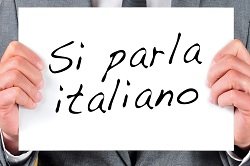

_(2).jpg)
